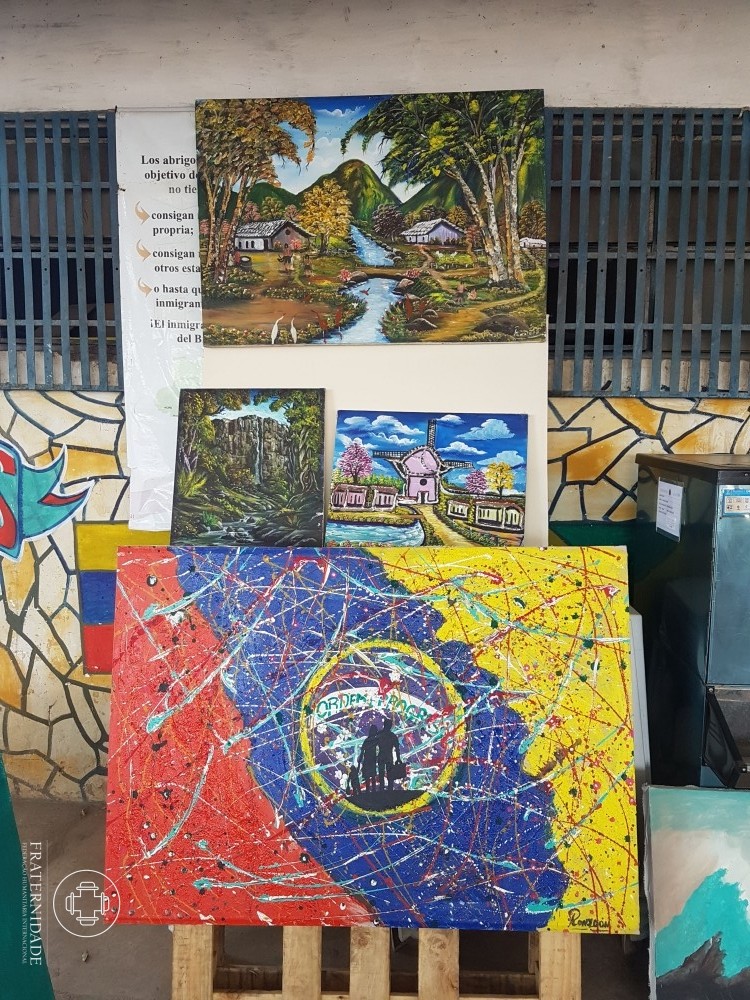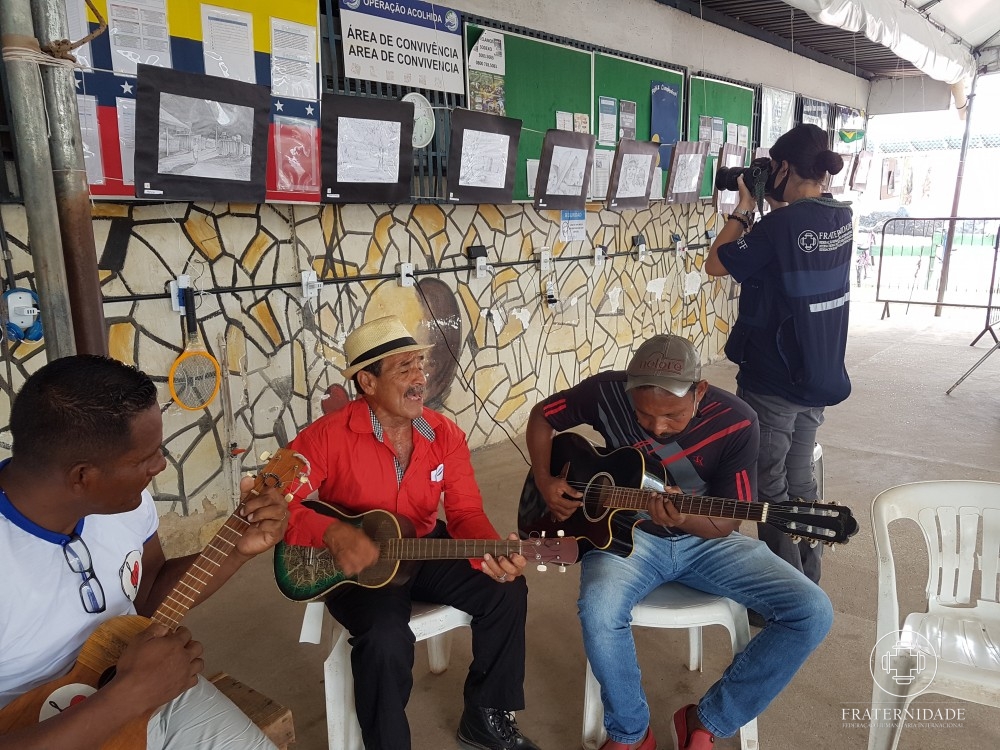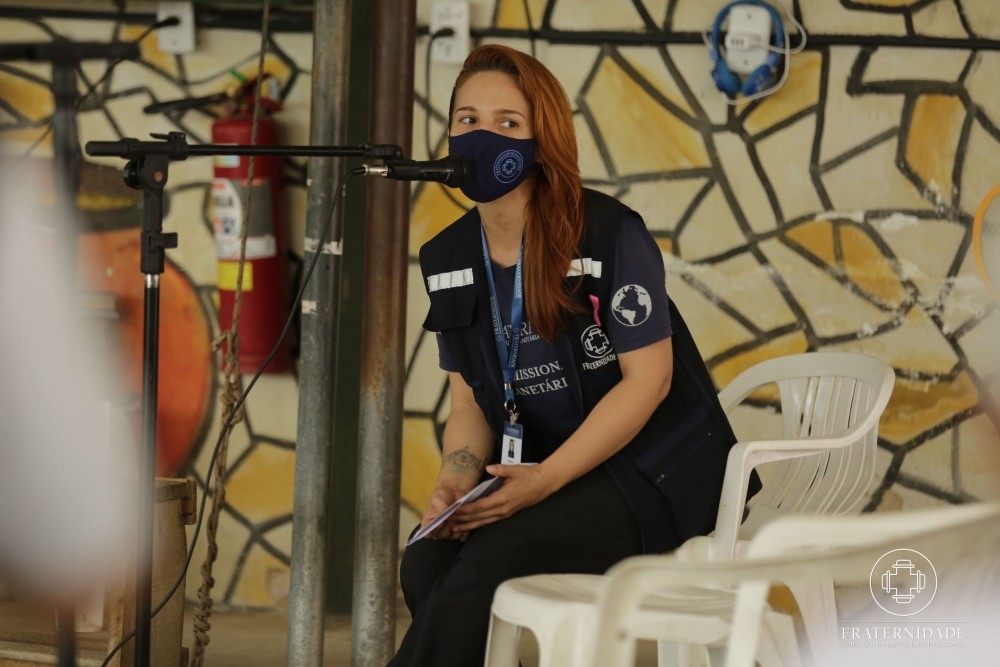Singing, drawing, painting and poetry filled all the corners of the Tancredo Neves Shelter, in Boa Vista, in the morning of October 3rd; Expo-Sá was the name chosen for this event that combined exhibition and soirée, giving rise to a cultural melting pot, full of joy and beauty!
It was the result of one month of work conducted by the missionary volunteer of the Fraternity – International Humanitarian Federation (FIHF), Rose Dália de Oliveira. Lyrical singer and doctoral student in Musical Performance at Unicamp, Rose, upon receiving the invitation from the Fraternity – Humanitarian (FIHF) to participate in the Roraima Mission, soon thought about the possibility of developing vocal work through a choir workshop.
Arriving at the shelter, she realized the artistic potential of the refugees unfolded in many other forms of expression beyond music. She discovered poets, singers, writers, painters, songwriters, illustrators – and decided to bring those potentials together in a broader work.


“I realized that I could develop teamwork with the choir, but that their other talents could also be accentuated, so they would be able to express themselves in a more free and personal way,” says Rose Dália
A missionária escreveu um projeto apresentando suas ideias e o encaminhou ao Alto Comissariado das Nações Unidas para os Refugiados (ACNUR). Projeto aprovado! É hora de entrar em ação.
The Challenges
In order to make the Expo-Sá possible, many paths were explored and a few challenges were overcome. When she first contacted the refugees, said Rose Dália, she “noticed it would be a huge challenge to develop teamwork, due to the traumas and other experiences lived by each one of the refugees.”
The volunteer missionary persisted in her intent, receiving tips from more experienced collaborators, on how to bring together the refugees, on how to bring out harmony in diversity. Although, according to Rose Dália, “something greater guided everything.” At a certain moment, she even suspected that she might have contracted Covid-19, having to be absent from her work for a week, until the results came out, reporting negative. “Knowing that I would be there for only 30 days made me surrender the situation, even if only one person, or nobody at all, showed up for the exhibition/soirée.”



“É preciso saber viver”
“When I left quarantine, I noticed that the participants were, in fact, uniting, coming up with different ideas, including ideas for the uniforms, the T-shirt logo and the invitation. To see that they were all participating and supporting each other, even in cases of solo presentations, moved me so much. It was a moment of immense joy and overcoming, when they were able to open up to each other, to the values carried by each one of them,” the missionary reports.
Rose Dália recalls that “the men in the choir were quite out-of-tune when compared to the women, and they asked me the reason for that; when I answered that the women were very diligent, for I saw them getting together to study, the men admitted that they had not been practicing, and then they organized themselves. And as a result, in just one day, the day of the pre-presentation, they were able to memorize the song.”
The song chosen for the performance was “É preciso saber viver” (You got to know how to live), by Roberto Carlos, sung by a diverse and plural choir, composed by 14 people: women, LGBTQI+ people, men, eldely people, disabled people (including one with hearing impairment). The portrait of multiplicity, perfect to describe the entire experience lived by the missionary and other participants of the event.
“It was a victory for all of us, in the name of a common collaborative union, a concept that translates the word fraternity.” concludes Rose Dália.







